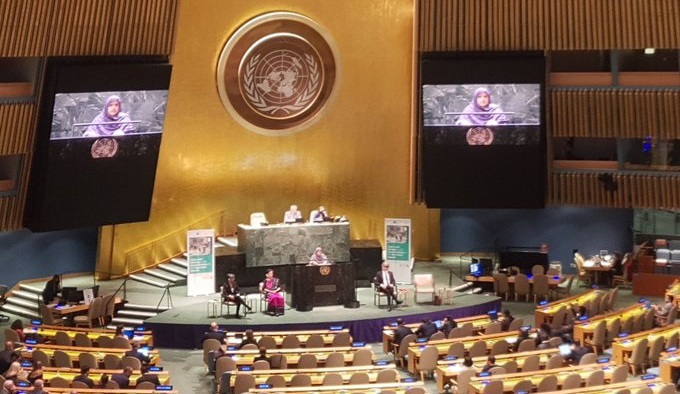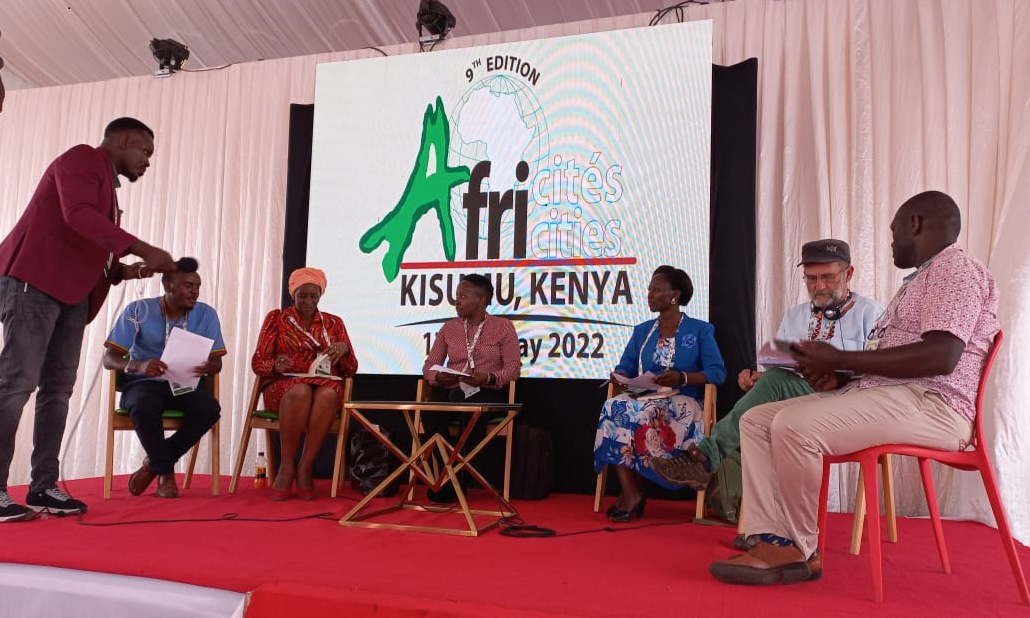1 October 2010 – As the world prepares to mark World Habitat Day on 4 October, more than half the world’s population lives in cities.
An estimated 1 billion live in slums and other sub-standard housing – more than one in seven people worldwide.
Hundreds of millions of these people live in truly dire conditions – without water and sanitation, public infrastructure or security of tenure.
The United Nations chose the theme Better City, Better Life for this year’s World Habitat Day, observance of which will launch at the Shanghai World Expo in China.
World Habitat Day is observed every year on the first Monday of October throughout the world. The purpose of the day is to reflect on the basic human right to adequate shelter and the state of our cities and towns. It also aims to remind the world of its collective responsibility for the habitat of future generations.
The global observance and celebration of World Habitat Day at the World Expo will be hosted by China’s Ministry of Housing and Urban Rural Development and the Shanghai Municipal Commission of Urban and Rural Construction and Transport.
China has been the subject of much criticism for violations of housing rights, including in the context of mega events such as the Beijing Olympics, during which at least 1.5 million Beijing residents were forced from their homes. COHRE published a report detailing housing rights violations in the context of the Beijing Olympics.
“Every year, hundreds of thousands of people are uprooted when neighborhoods are cleared to make way for mega events, “development” or the “world class city” ambitions of the politically and economically powerful – this is particularly true in China, making it an uncomfortable choice as the host of this year’s World Habitat Day celebrations,” said Salih Booker, Executive Director of the Centre on Housing Rights and Evictions (COHRE).
"We hope that the Chinese government uses this day as an opportunity to commit itself to improving its own record on housing rights, in recognition of its obligations under the International Covenant on Economic, Social and Cultural Rights, to which it is a party.”
This year will mark the last World Habitat Day under the leadership of Anna Tibaijuka, UN-HABITAT’s Executive Director since its establishment in December 2001.
During her tenure, Anna Tibaijuka was instrumental in promoting access to water, sanitation and slum upgrading worldwide. She also helped put urban poverty high on the agenda of regional bodies and is widely-credited with raising awareness about the global challenge of rapid urbanization.
In August, the UN General Assembly elected former Barcelona Mayor Joan Clos as new Executive Director of UN-HABITAT. He is expected to begin his tenure on 18 October.
“Over the last ten years, the total number of slum dwellers worldwide has increased by more than 50 million. This fact exposes the inadequacy of the only Millenium Development Goal (MDG) focused on slum dwellers, which aims to achieve a significant – though undefined – improvement in the lives of at least 100 million slum dwellers by 2020,” said Salih Booker.
“In fact, according to UN-HABITAT’s own State of the World’s Cities report, released earlier this year, any housing efforts made by countries to improve living conditions over the last decade were more than countered by world population growth and the rural exodus to cities.”
“The growth in the number of slum dwellers is a trend that must receive priority attention from UN-HABITAT’s new Executive Director Joan Clos, with a strong focus on state recognition of the right to adequate housing and their obligations in this area.”
In July, the UN General Assembly passed an historic resolution declaring the “right to safe and clean drinking water and sanitation as a human right that is essential for the full enjoyment of life and all human rights.”
“The recent UN resolution recognizing the right to water as a human right is a clear signal that the international community is ready to accept a human rights approach to the question of adequate housing, as access to water is one of the key elements that constitute adequate housing,” said Salih Booker.
“UN-HABITAT needs to build on this advance to counter the looming human rights catastrophe we are facing in our towns and cities. Hundreds of millions of people are living in desperate situations that are getting steadily worse.”
According to the UN-HABITAT report, Sub-Saharan Africa has the most slum dwellers (199.5m) followed by South Asia (190.7m) and East Asia (189.6m).
“We need to think of our cities in a new way: as places that must guarantee the human rights of their inhabitants, including the right to adequate housing – which must include access to clean water and sanitation and security of tenure,” said Salih Booker.


